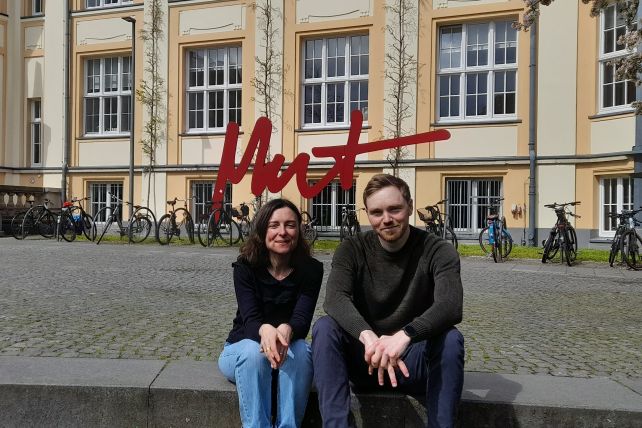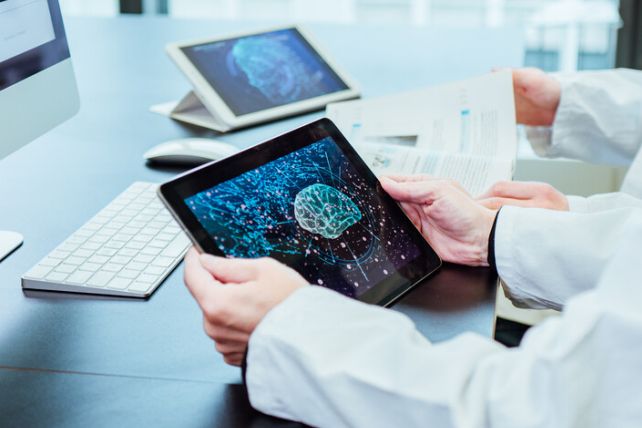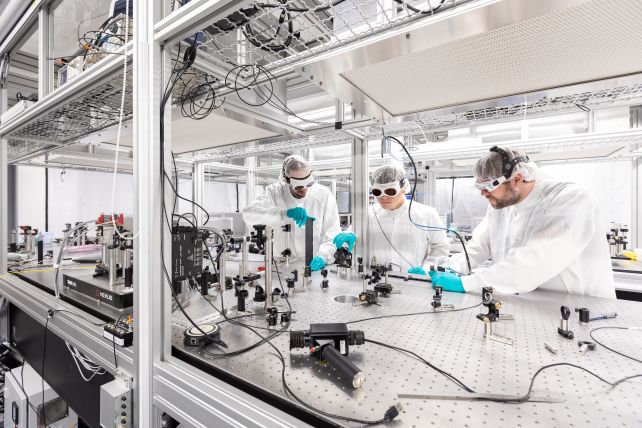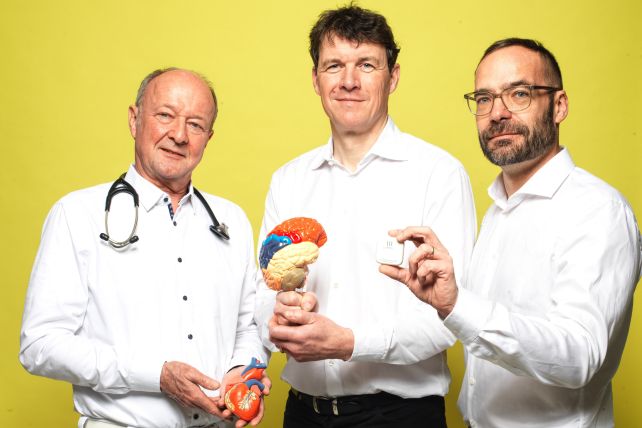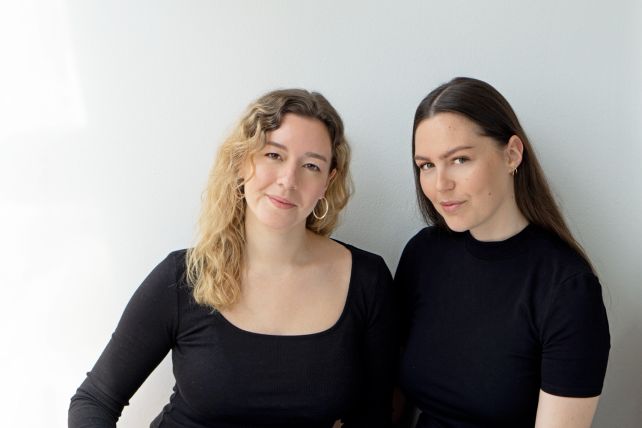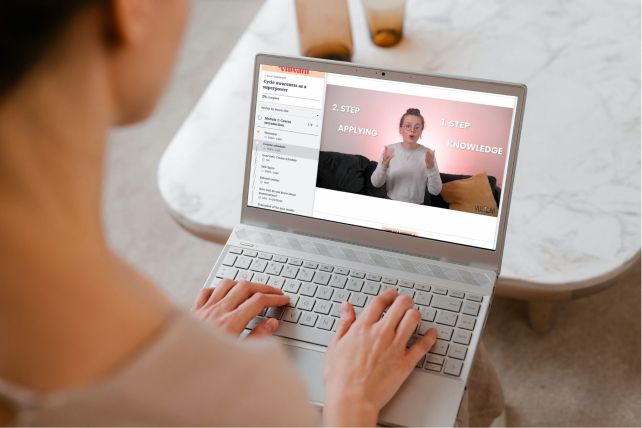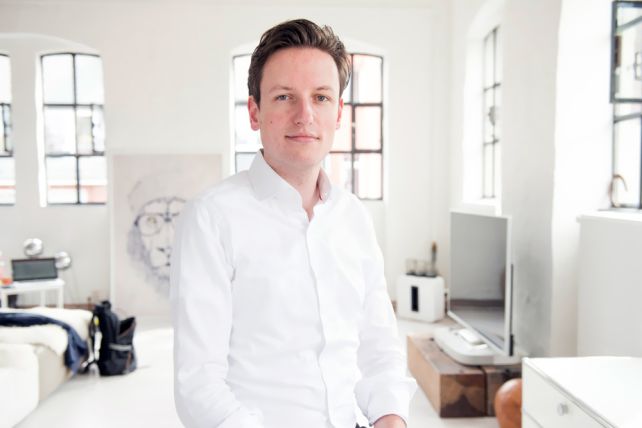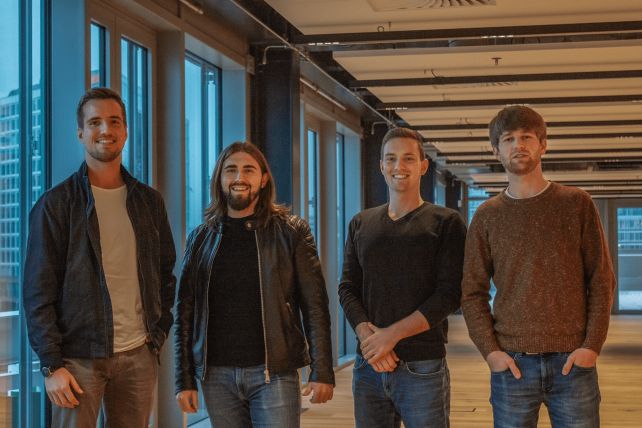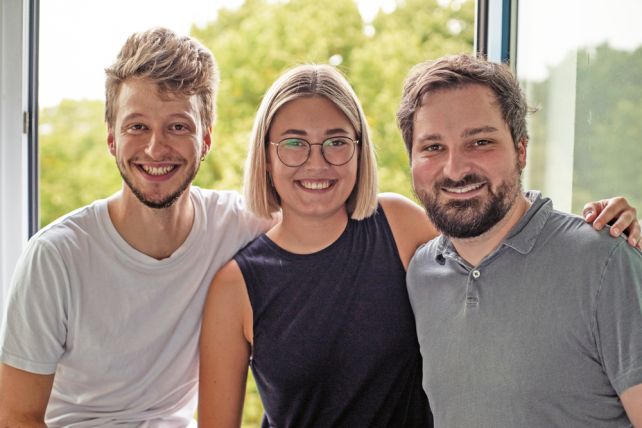Alpacas, these friendly animals from South America, are known for their high-quality wool. But they can do much more: the startup Berking Biotechnology uses the animals to produce antibodies to fight diseases ranging from Covid to cancer.

A coincidence led to the discovery of a new type of antibody
Antibodies are proteins that play an important role in the immune system. In medicine, they are often isolated from the blood of animals and used as therapeutic agents for various purposes, for example as vaccines. Single-domain antibodies, also known as nanobodies, are a special form. By the way, the French pharmaceutical company Sanofi has protected the term as a brand name. Put simply, nanobodies are characterised by a less complex molecular structure compared to other types of antibodies and are therefore easier to reproduce.
The nanobodies were discovered by chance in 1989 at the Vrije Universiteit in Brussels. Professor Raymond Hamers was carrying out a routine experiment there to isolate antibodies. Due to a lack of alternatives, he used dromedary blood left over from an earlier study. The antibodies produced differed from all previously known types. The enormous progress this discovery meant for medical research only gradually became clear. It led to the founding of the biotech company Ablynx in 2001, which specialised in the development of nanobody-based drugs. With huge success, which culminated in the takeover by Sanofi. The company paid 3.9 billion euros for Ablynx in January 2018.

Privately and in the company a couple
At that time, Berking Biotechnology was just a few months old. The company is named after biologist Dr. Anne Berking, her co-founder is Dr. Alejandro Rojas, also a biologist. When Anne was studying in Alejandro's home country of Chile, he was given the task of looking after the guest from Germany. He took this task so seriously that the two became a married couple. When Anne returned to her home university in Constance, he accompanied her and completed his studies there. They both did their doctorates in the city on Lake Constance. Furthermore, they spent several years together at the Medical Research Center at the University of Dundee in Scotland. The founding of Berking Biotechnology brought the couple back to Chile, more precisely to Valdivia.
The city is close to the Pacific Ocean, but in this country that stretches for more than 4,000 kilometres along the west coast of South America, the Andes are nowhere far away. It is in this region that alpacas, bred primarily for their wool, feel most at home. The animals belong to the camel family of mammals, just like dromedaries. And just like them, alpacas are suitable for the creation of nanobodies. The aim of Berking Biotechnology is to further research the potential applications of these antibodies and to use them commercially.
For example, in the identification of SARS-CoV-2, better known as coronavirus. Alejandro's research group published a highly regarded article on this topic in 2020. Or to combat dangerous viruses such as Nipah, which can be transmitted via fruit contaminated by flying foxes and can cause meningitis, which is 70% fatal. Fortunately, such infections only occur very rarely, which makes the production of antidotes less attractive for pharmaceutical companies, though.

Berking Biotechnology was able to develop well in Chile and also received sufficient support. At some point, however, the decision was made that expansion into Europe would be necessary for further growth. The choice fell on Germany and Hamburg for obvious reasons. Firstly, because this is Anne's original home. Her father Bernhard worked there for many years as a professor of maritime navigation. Secondly, because Hamburg is becoming increasingly important as a location for science.
Science City Hamburg Bahrenfeld, an emerging district dedicated to research and science, is a prime example of this. It is also home to the tecHHub Hamburg, where Berking Biotechnology recently moved in. The building combines offices, meeting rooms and laboratories, which is ideal for a startup that can avoid the risk of having to fully finance such facilities itself. The business development agency Hamburg Invest provided valuable assistance in the relocation process. The Chilean business office PROCHILE and the Chilean embassy in Berlin also played an important role in the startup's expansion in Germany.

Now Hamburg is taking on a new challenge: Science City. I am certain that the tecHHub and the future innovation factories are the beginning of a transformation that will make Hamburg an international reference centre for scientific and technological development. And we are both convinced that we are in the right place at the right time to contribute to this challenge!”

Two new companies with big goals
In Hamburg, Anne and Alejandro continued to diversify and founded two new, independent companies together: Berking BioScience and Berking Theranostics. The tasks of Berking BioScience are wide-ranging, including the promotion of healthier nutrition. Specifically, it is about improving the conditions in salmon farming, where antibiotics are sometimes used on a massive scale. Another problem is salmon lice, which are not insects but small crustaceans. These parasites feed on the skin and blood of the fish, which in extreme cases can lead to their death. The use of nanobodies can both reduce the use of antibiotics and help the salmon to develop a defense mechanism against the parasites.
Berking Theranostics is the result of a year-long collaboration with nuclear chemist Dr. Vasko Kramer. The company specialises in the development of new therapies against cancer by combining nanobodies with radionuclides, low-level radioactive atoms. This relatively new method of detecting tumours is practical because tumour cells have a similar structure to proteins and antibodies can react to them accordingly. Berking Theranostics hopes to be able to develop an initial cancer therapy on this basis in the next two years. Investors with experience in oncology could drive the process forward.

The alpaca is at the heart of Berking Biotechnology
A great responsibility therefore rests on the backs of the alpacas, which are ultimately responsible for producing the antibodies. Animal rights activists have already expressed concerns as to whether this could be harmful to the animals. However, the inactive fragments of pathogens or tumours with which they come into contact during the formation of the nanobodies do not affect their health. After the immunisation process, only 100 millilitres of blood containing millions of antibodies are taken from them. The alpacas then have a year's break and can enjoy their herd life in Chile. And when they retire at some point, they have a party. There is even an Instagram account with 18,000 followers about the life and work of the animals. Alejandro has also written a children's book about their contributions to medicine, with another to follow.
As the example of Ablynx shows, nanobodies can generate billions in business. Berking Biotechnology is not necessarily aiming for an exit; the company would rather sell its own drugs. Until that happens, orders from pharmaceutical companies and research institutions form the basis of the business. Meanwhile, the startup will remain connected to both its locations in Hamburg and Valdivia. The company's origins in Chile paid off last year when Anne and Alejandro were able to accompany Chilean President Gabriel Boric on his trip to Europe. Will the alpacas also pay a visit to Germany one day? Probably not, even though the animals can also live here. So, if Berking Biotechnology and its spin-offs scale up as hoped, another small herd could well find a home in Hamburg.
-
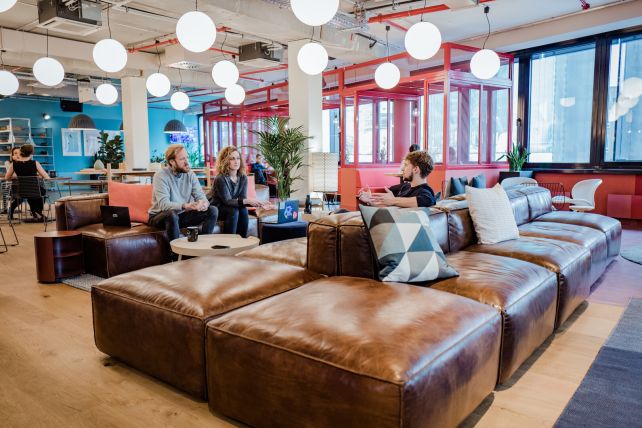
Discover coworking spaces for startups
Looking for a temporary office for yourself and your team? Then discover Hamburg’s diverse coworking offers: In addition to flexible workspaces for a day, coworking spaces in Hamburg also provide office space for entire teams as well as meeting rooms. The exchange with other entrepreneurs comes free of charge!
-
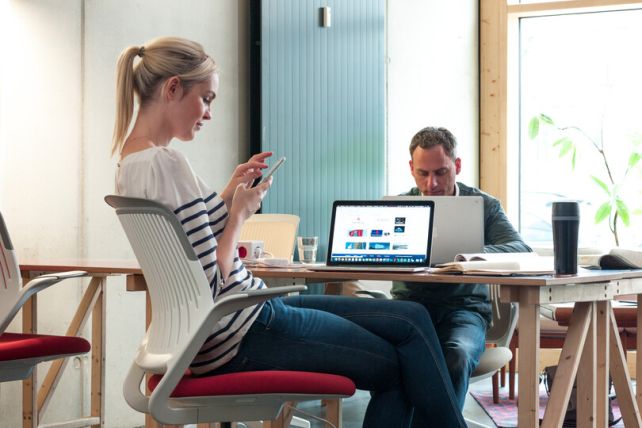
Innovation hubs & maker spaces
Hubs bring together innovative ideas and technologies, startups and established companies. Here, founders can access inspiring networks and experienced mentors. In fab labs and maker spaces, startups can test their product ideas and network with other founders and researchers.
-
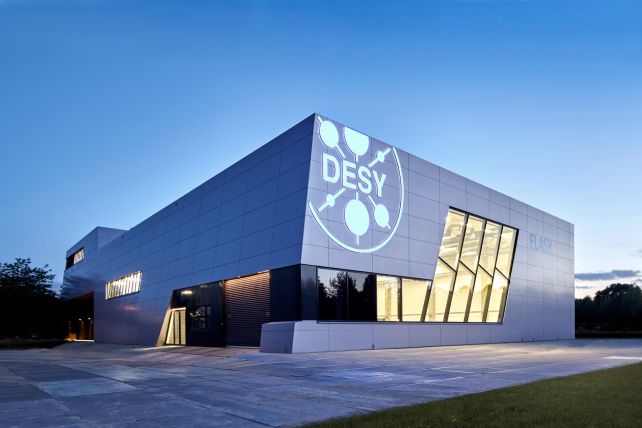
Create change in our innovation parks
As hotspots for innovation and networking, four large innovation parks will be created in Hamburg over the next few years. In Altona, Bergedorf, Harburg and Finkenwerder, areas with office space, coworking, seminar and meeting rooms, as well as laboratories will offer a perfect infrastructure for diverse work and research.


